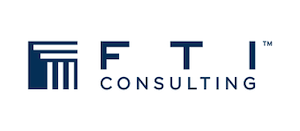Translation provided by JIGGSLAW®. DeliBest, a food provider group for Chilean public schools with Uruguayan capital, has sent a notification of arbitration to the Chilean government for payments due for feeding services during the October 2019 youth revolts in Santiago, a social movement sparked by an increase in transportation prices.
Chilean Media sources reported that DeliBest, the Uruguayan food provider group for Chilean public schools, has notified the Chilean government of its intention to arbitrate, which would have scheduled the dispute review to determine the start of negotiations talks in March.
During the 2019 October revolts, when thousands of students sabotaged the Santiago tube in protest of rising transportation costs, the Uruguayan company was forced to serve food portions in public schools. As a result of this situation, students did not attend educational institutions, and food portions committed by the government were not served. The system considers payment for actual services.
According to the information gathered by Ex- Ante, Delibest accuses the government of being obligated to provide food portions during the protests, and this media explains that an American investment fund, the Rohatyn Group, is supporting the claim, and the arbitration is following the Free Trade Treaty with US protocols to initiate proceedings before the International Centre for Settlement of Investment Disputes (ICSID).
Changes in procurement requirements that affect the group
Gabriel Boric’s government advocated for a change in the National Board of Student Financial Aid and Scholarships (Junaeb in Spanish) procurement criteria for scholar food provider services in order to avoid a concentration of service in a few hands. According to CIPER, this amendment would affect the Merkén Consortium, which is part of Delibest, and has in total of 75% concentration ratio. (see “Licitaciones de la Junaeb: las millonarias cifras de la concentración en el negocio de las raciones escolares“, Macarena Segovia, Luna Angel y David Tralma, 22.04.2022).
The amendment to the procurement criteria for 2023–2026 prohibits companies from the same group from bidding together in the scheme, which aims to help contractors deal with rising food costs, increase small business participation, and end the multi-RUT practice, in which companies participating in the process share a final beneficiary. According to a Merkén SpA press release, the last point set off alarm bells in the Uruguayan group Delibest, which sued Junaeb before the Public Procurement Court on December 15, accusing it of unlawful and arbitrary behaviour and deliberately excluding its companies from procurement processes.
Under the new terms, DeliBest companies would be prevented from bidding in areas where they currently operate. According to a press release, Delibest sued Junaeb in December before the Public Procurement Court, accusing it of deliberately excluding its companies from procurement processes; however, according to Ex-Ante, the Court would not have ruled to halt the process (see “Graves fallas en Junaeb: 150 mil alumnos no tendrán laptops en primer semestre y peligran las colaciones escolares en marzo“, Eduardo Olivares C., 24.01.2023).










